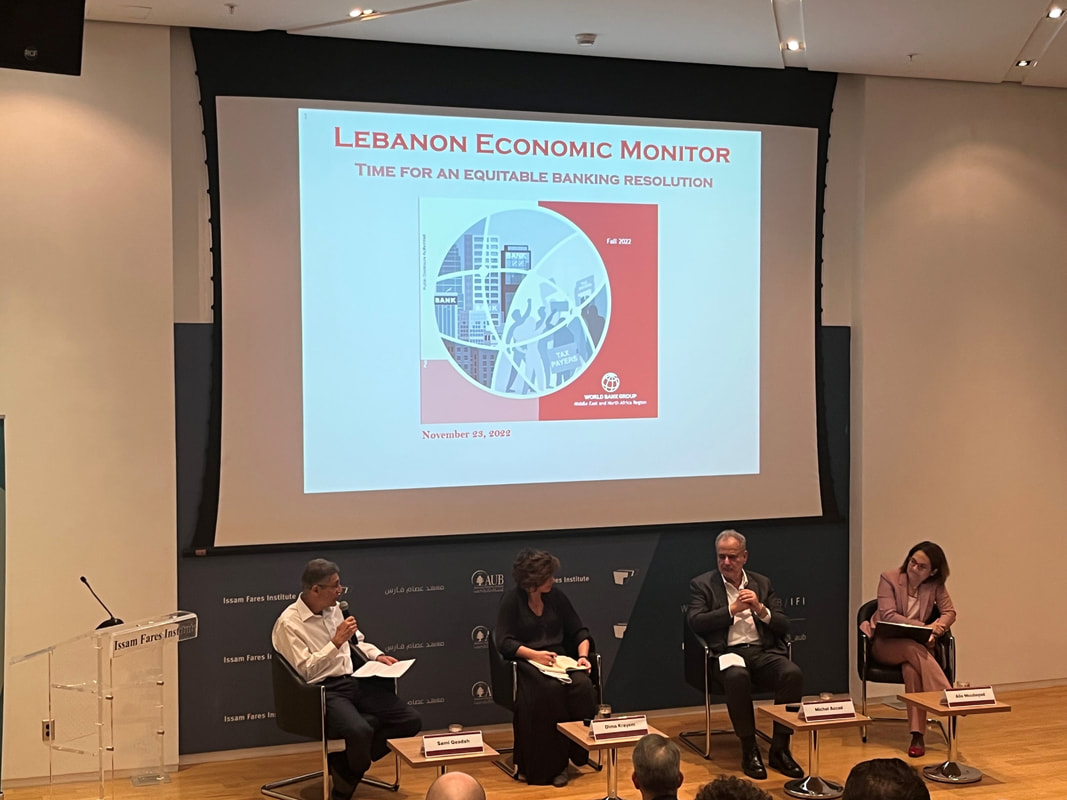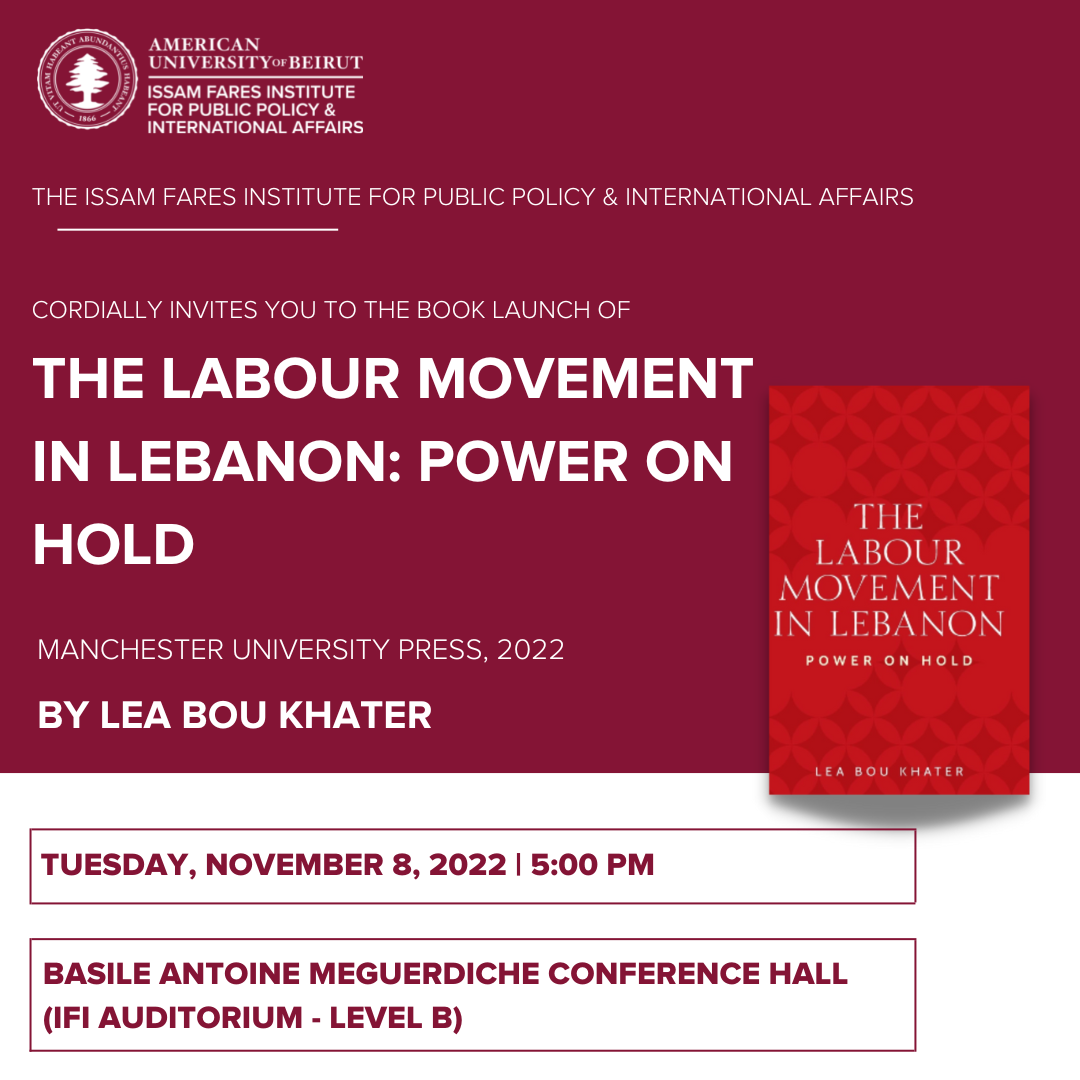|
IFI, in collaboration with The World Bank, launched the Fall 2022 Lebanon Economic Monitor (LEM) titled “Time for an Equitable Banking Resolution.” The launch took place on November 23, staring with a brief presentation of the report by Senior Economist Dima Krayem, with remarks by IFI Director Joseph Bahout, and The World Bank’s Mashreq Country Director, Jean-Christophe Carret and Practice Manager- Macroeconomics, Trade and Investment Eric Le Borgne. The report was discussed by a panel including Sami Geadah, IFI Associate Fellow, Alia Moubayed, Emerging Markets Economist, and Michel Accad, Executive General Manager of BankMed.
IFI held the book launch of “The Labour Movement in Lebanon: Power on Hold” by Lea Bou Khater on Tuesday, November 8, 2022 at the Basile Antoine Meguerdiche Conference Hall (IFI Auditorium).
|
Archives
July 2024
|


